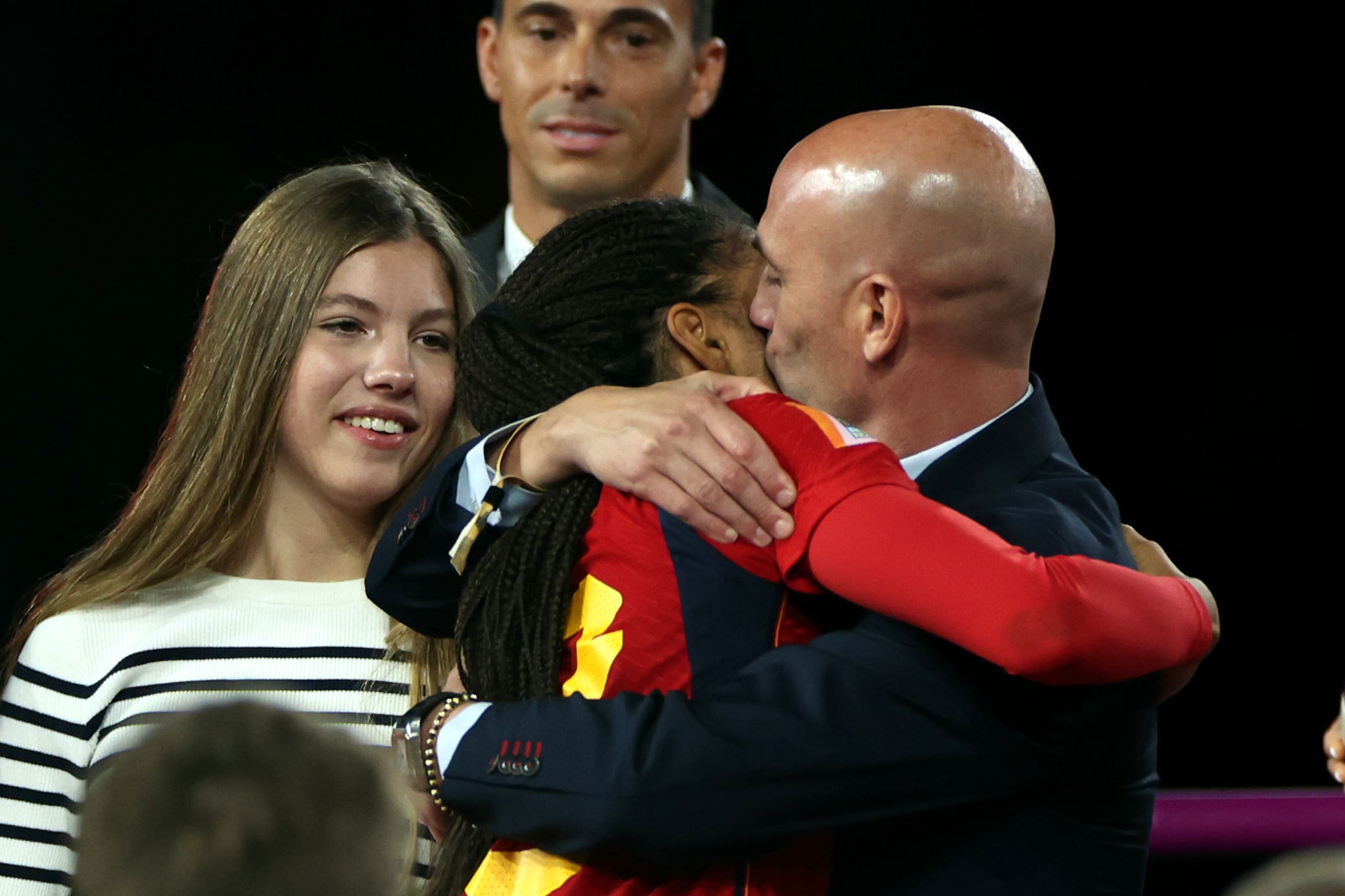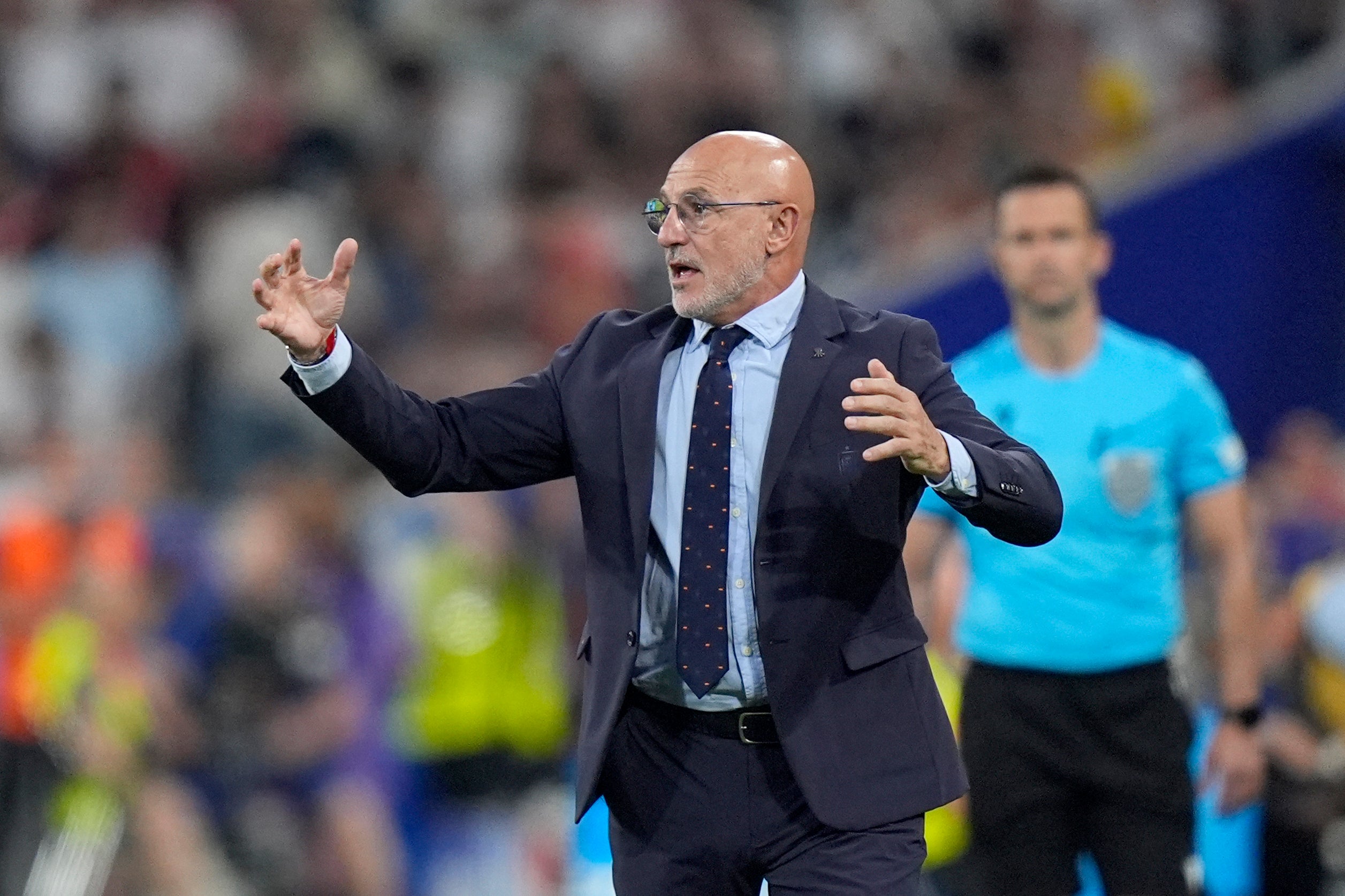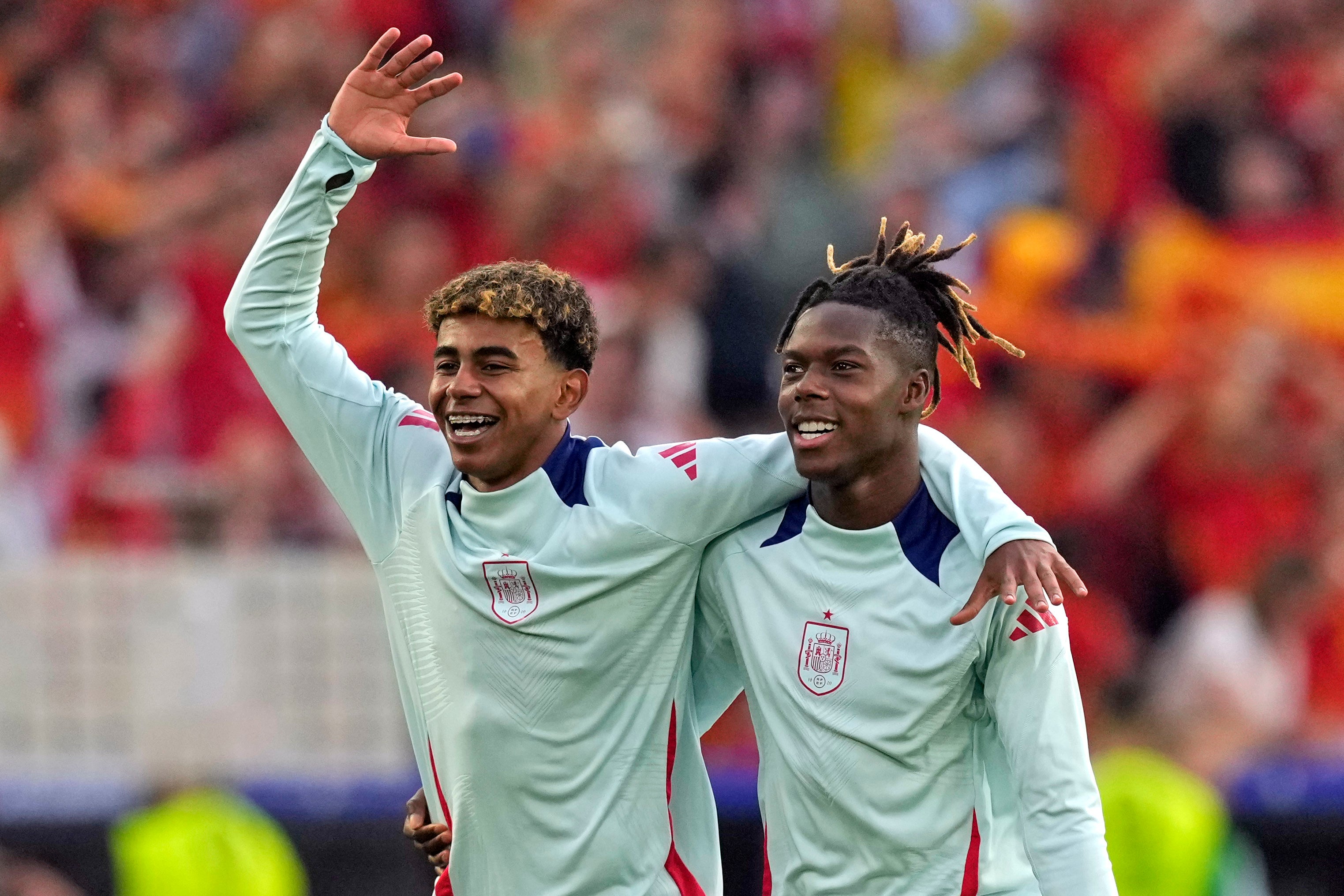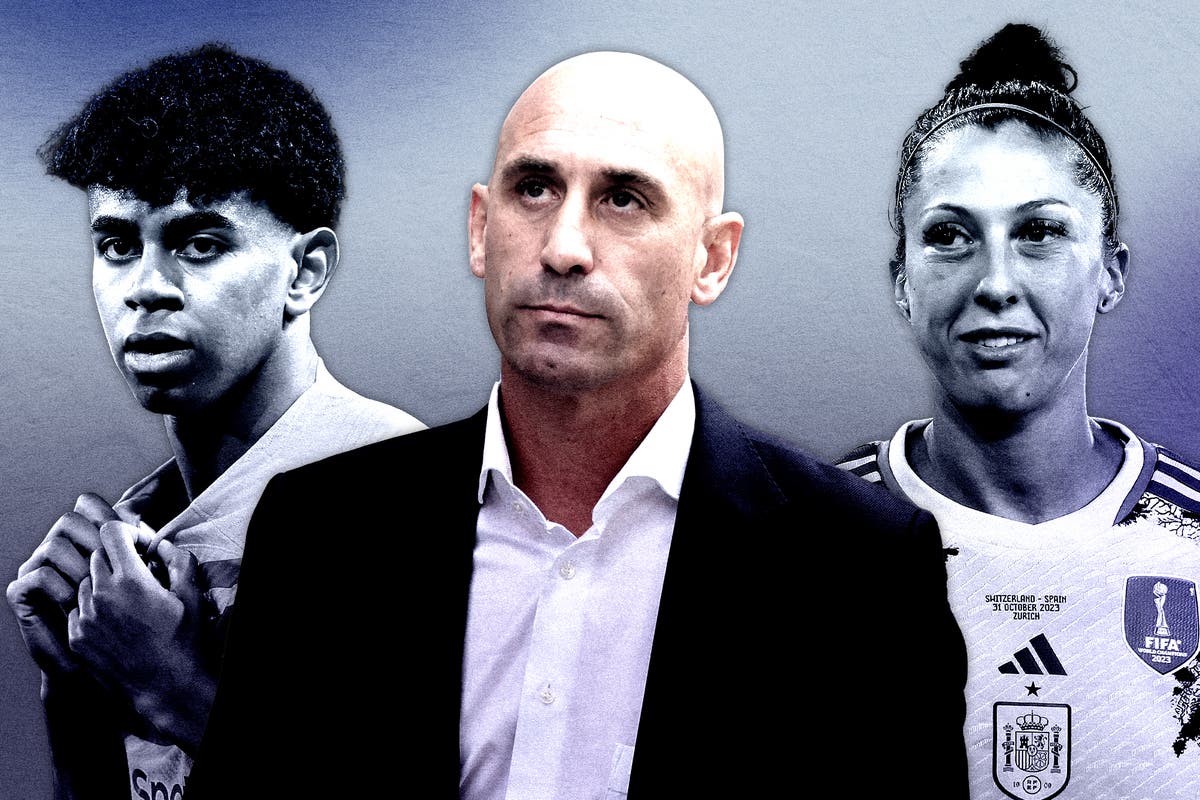As justified as the praise has been for Luis de la Fuente’s management of a brilliant Spanish team, there was one “severe criticism” from his tenure, which the coach admitted was “totally deserved”.
That was when he applauded the disgraced Luis Rubiales, at the press conference when the disgraced former federation president insisted he would not resign after his unsolicited kiss on Jenni Hermoso. De la Fuente later pleaded for “forgiveness” for “an inexcusable human error” that did not reflect his “values”, but there are those in Spanish football who think it will “haunt him for his career”.
That would admittedly change if his team beat England in the Euro 2024 final, to secure Spain’s fifth men’s trophy and fourth European Championship, but it does add a few layers to this historic match – as well as a twist worth considering.
Had England actually won the last final between these countries, the 2023 Women’s World Cup final, Rubiales might still be in his job and at the Olympiastadion on Sunday. He wouldn’t have had a chance to “celebrate” in the chauvinistic way he did, so the various problems he presided over wouldn’t have been brought to the fore.
It is telling that many of those problems remain, as Rubiales’s reign very much haunts the federation. The former president will have to stand trial over the unsolicited kiss, after the Spanish high court agreed to hear the case. That is going to bring a lot of searching conversations about the country’s football culture, beyond ball possession and pressing. Pedro Rocha, the replacement whom Rubiales himself handpicked before being banned, has also faced calls from Spain’s superior sports court to be banned for six years – over an investigation into corruption allegations from his time as vice-president. Rocha has strongly denied any wrongdoing.

Spanish football, evidently, is only at the start of what is likely to be a painful cultural overhaul. The words of Amanda Gutierrez, the president of the Futpro union that represents Hermoso, should not be forgotten. At the height of that crisis, she said “these discriminations” are “something that football players suffer every day of their career”.
Specific reforms, to begin what the federation described as a “conceptual shift”, have been enacted. One was a gender-neutral rebrand so “women’s football” was eliminated from the name of its national team. The actual management of the squads, as regards logistics and other basic issues rather than football, is now under constant scrutiny. The players have much more of a voice, and that is being heard. Processes are ongoing to professionalise women’s football and ensure a better redistribution of resources.
Legendary former Spain and Real Madrid manager Vicente del Bosque has meanwhile been appointed as the head of a new government-created committee, intended to supervise the federation and bring “normalisation and representation”, as well as ultimately “restore the reputation, good name and image of Spanish football”.
The committee isn’t viewed as having much actual power, though, which is seen as reflective of other reforms. Although Rocha did remove many influential officials considered close to Rubiales, they were internally viewed as “attempts to save his own skin” and avoid another crisis. The current president, as his own rise illustrates, is described as one of his “confidantes”.

This is why De la Fuente said more than he might have intended, when he attempted to explain his response at the Rubiales press conference. “I applauded for the context in a situation of pressure in the environment.” A description since has been of “like a Soviet apparatchik”. It is why the government’s attempts to completely overhaul Spanish football’s entire structure – particularly those of leftist politicians – are being cast as this much bigger conflict.
The criticisms about “how weak the federation’s government and oversight sources are”, to quote one source from the height of the Rubiales crisis, still stand. It is still beholden to a clientelistic system run by white men who are middle-aged or older.
The federation elects an assembly that gives immense power to regional representatives, who themselves almost preside over fiefdoms. This mimics the top-down structure in Fifa, Uefa and many other sporting bodies, which is why the entire Rubiales case was a touchstone for wider problems with sporting regulation. Figures all the way down the system have requests acceded to, and they respond to that by returning their votes at elections.
Suitably, it is described as “exactly like how World Cups or Olympic games are voted on”. “Try and find a photo of the regional presidents,” one Spanish football figure says. “You won’t find anyone who isn’t a man under 50. It’s a reflection of a system that is archaic, feudal and sexist.”
Even on a basic level, it means the federation only reflects and promotes the perspectives of a single demographic.

This is why political factions are intent on overhauling that infrastructure. It actually becomes all the more important the more successful that Spanish football is, since the country’s playing ideology becomes a lesson for the game.
The current teams are at the centre of other political schisms, too. With separatist sentiment now so strong in Catalonia, amid a persistent gap between the Barcelona and Real Madrid elements within Spanish football, De la Fuente has been cast as an important unifying figure since he has links to neither.
He has also overseen the promotion of Nico Williams and Lamine Yamal, two brilliantly talented wingers from migrant families. That comes amid the rise of the far right in Spain, as in many other European countries. It does offer credence to De la Fuente’s protestations from the Rubiales case that he is “always at the side of equality and respect”.
This tournament can continue to be a symbol of a new Spain, as it attempts to overcome so many old issues.
It is still remarkable to think that, had England won the last major final between these nations, Rubiales would be here lording it over it all; maybe even talking about the virtues of Spanish football. He instead faces a trial that could yet bring a prison term of two and a half years. Spanish football must look much further into the future.

